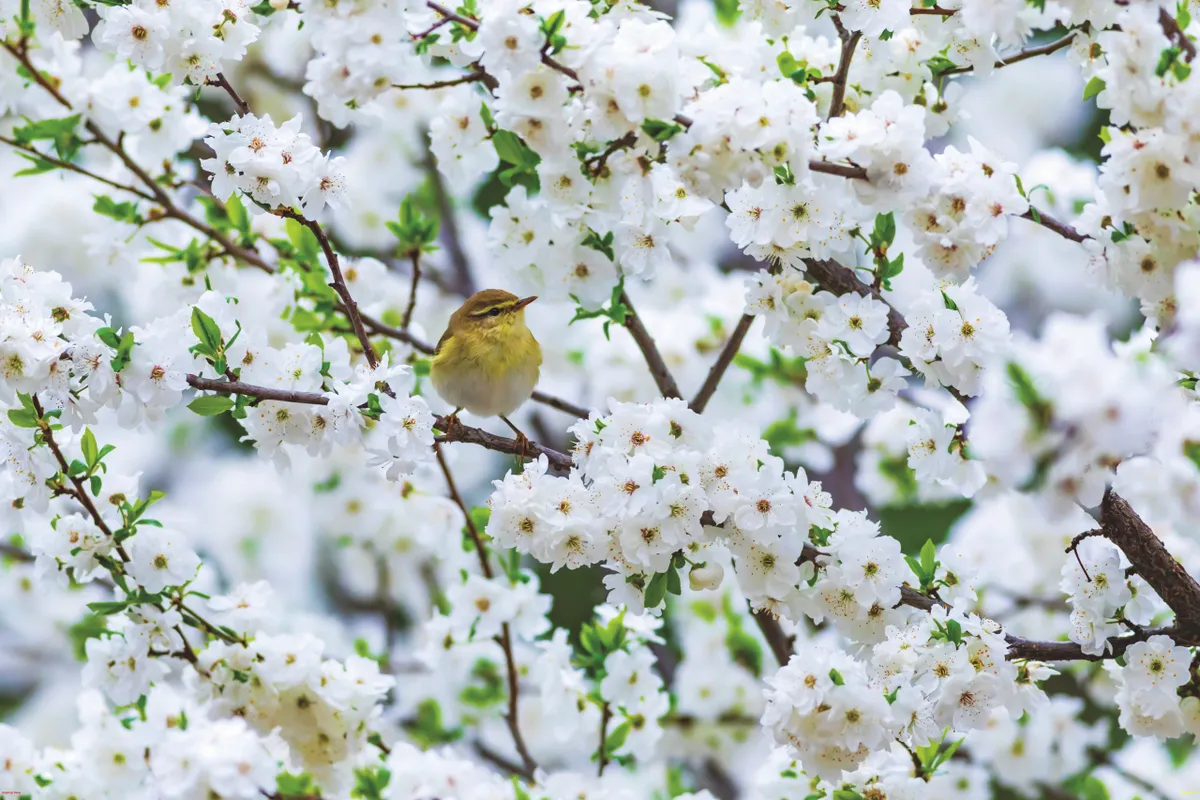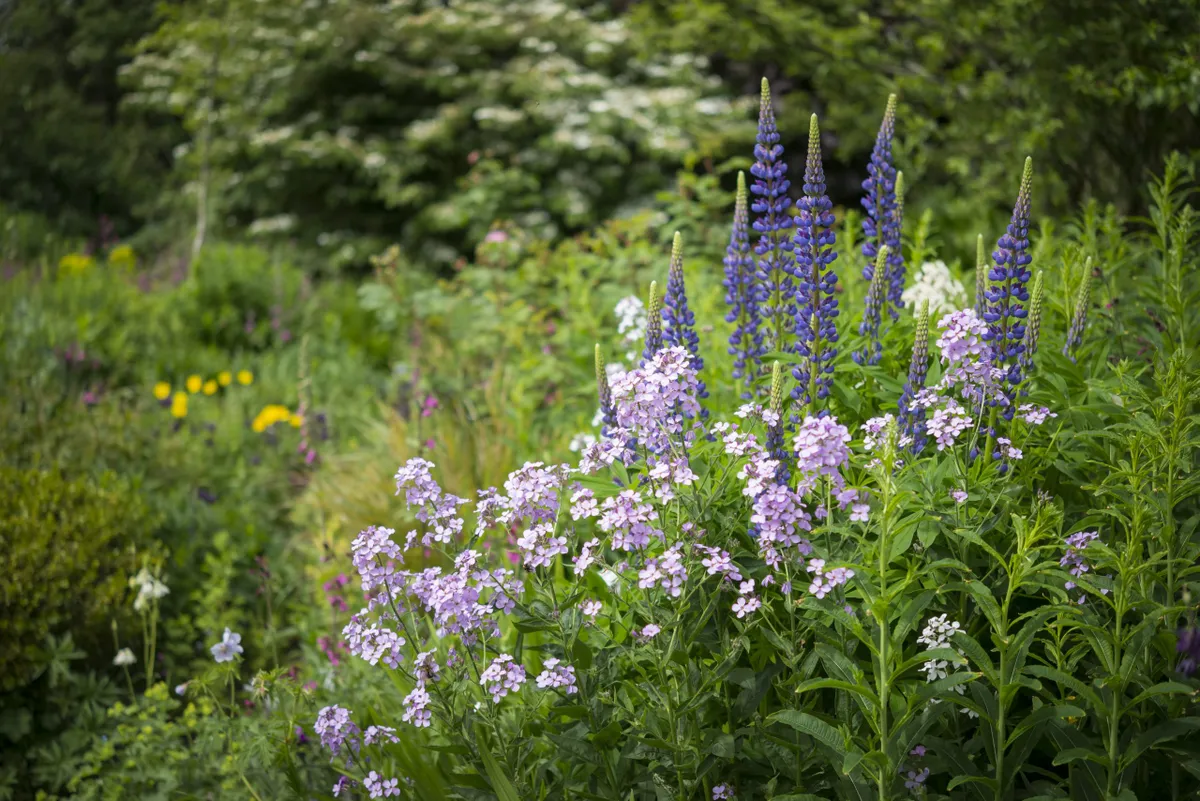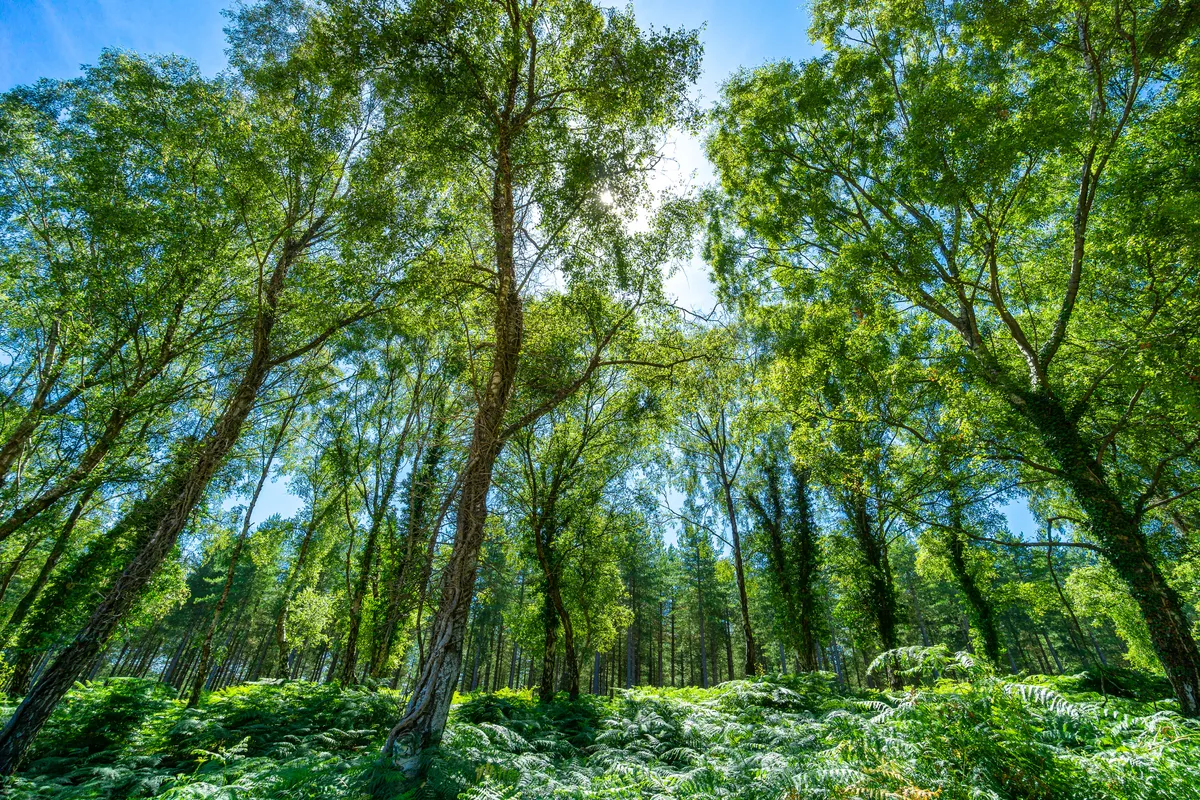How has your relationship with the natural world changed since 23 March 2020? As a reader of BBC Countryfile Magazine or website, I’m assuming a pre-existing level of interest and connection – but did you find, like so many others, that your need for nature deepened even as our access to it was curtailed?
The changes Covid-19 has wrought on our health, our society and our economy have been heartbreaking, but as someone who writes about the natural world for a living, I’ve also been inspired by the changes I’ve seen take root in so many people’s lives. You could spend half a century campaigning, write a hundred columns about the environment, make countless TV programmes about wildlife and it wouldn’t even begin to approach the quiet revolution in outlook that swept the UK within the course of just a few short weeks, as lockdown hit, and then bit down.
It seemed instinctual, a collective reaching-out for the one thing we trusted and knew that we needed: the natural world and its changing seasons, expressed in birdsong and blossom, the daily diorama of the weather, and the gradual leafing and burgeoning of even the humblest of street trees.

As our worlds shrank and many distractions fell away or suddenly seemed hollow, we rediscovered simple pleasures and the patience to simply sit and watch. Those of us with gardens thanked our lucky stars for somewhere to sit and feel the sun on our faces; we ordered seeds in such numbers that online retailers quickly sold out. Everywhere, parks became newly precious, full of promising corners to discover and modest wonders to explore – and visits to them soared by 67%.

Out in rural Suffolk, with miles of open countryside on my doorstep, I decided to share it with people in cities or gardenless flats by creating a weekly nature podcast, called The Stubborn Light of Things. The response to it was overwhelming, and hundreds of people shared with me their new joys, new discoveries, new routines; I sensed a hunger for nature that hadn’t been there before, and better still, the space to attend to it in lives that had, until lockdown changed everything, been perilously overfull.
This shift seemed purely instinctual; certainly, there was no Government guidance telling us all to listen out hungrily for birdsong, plant whatever seeds we could get our hands on, or try to learn the names of the wildflowers growing through the pavement cracks in our streets. To me, the fact that people were eagerly doing all these things felt like proof of the deep, atavistic biophilia that lives inside all of us: a knowledge of what is good for us that no amount of disconnected modern living can entirely eradicate.
Feeding the soul
For years now, evidence for the benefits of contact with nature – both physical and psychological – has been accumulating, and most of us now understand that nature deprivation can have long-lasting adverse effects on our mood, emotional stability, learning outcomes, resistance to infection, blood pressure, the production of stress hormones, even our digestive health. It’s hardly surprising, given that we evolved in close contact with our natural environment for millennia – remove us from it, and we suffer in ways that we’re only now beginning to understand.

And modern life does remove us from nature: most of us spend much of our time in artificially lit, temperature-controlled homes or offices, we no longer grow our own food as a matter of course, as most people did even a century ago, and one in eight UK homes now has no garden (over a fifth in London, a statistic that disproportionately affects ethnic minorities). Worst of all, there is simply much less nature to be in contact with, as 44% of species have decreased in numbers over the past 10 years, and 15% are threatened with extinction here. Add to that a world increasingly rich in distraction and it’s no surprise that the simple pleasures of finding and observing a nesting bird, making a daisy chain or simply going for a daily walk had slipped, for large numbers of us, from view.
A natural discovery
Interestingly, the process I watched so many people going through this year closely mirrored my own experience of discovering an innate need for nature earlier in my life.
I grew up in the late 1970s and early 80s, part of what was probably the last generation allowed to play outdoors unsupervised all day. Yet when I moved to London’s Zone One straight after university, my contact with nature was severely curtailed. The area around my flat was bleak, grimy and disfigured by poverty, with no green spaces in walking distance, and the lorry route I lived on didn’t even have any street trees. Distracted by the stresses and rewards of modern life, I didn’t realise the impact on me of the loss of a connection I’d until then taken for granted. It’s only now, looking back, that I can see the insidious damage it was doing to my health and happiness.
Like many of the people who connected to nature anew this year, I hadn’t consciously realised what was missing – but like them, I was quick to feel an improvement once I’d got it back. A move to a greener part of the city was followed by another, to a rented flat with a little garden. Immediately, hungrily, and barely understanding why, I planted seeds, pruned the unprepossessing shrubs, and hung up bird feeders to see what might stop by. A garden made getting a rescue dog possible, and walking her was the greatest transformation, bringing me into daily contact with the urban green spaces I would grow to know and love deeply.
Watching parks and commons, as well as my little garden, change through the seasons, and year on year, at last gave me the physical, imaginative and emotional connection to the natural world that I so desperately needed. I felt happier, healthier, stabler and more creative, and city life became not just survivable, but a genuine pleasure.
In order to share the discovery I’d made, I began to write about nature: at first on a blog, then in nature-rich novels, non-fiction and children’s books, via a column in a national newspaper, for the radio, in a lockdown podcast, and by putting together anthologies of nature writing from all over the British Isles. Now I live in rural Suffolk, but it’s my belief that a nature-rich life can be lived wherever you are, if you can only begin to tune in to it – as so many hundreds of thousands of people have this year.
So what happens now that the months of strict confinement are over and slowly, we try to work out what the ‘new normal’ might look like? The truth is that although the shift in public awareness of nature could be transformative, and is certainly cause for optimism, lockdown also resulted in changes that are a great cause for concern. For many conservation organisations, revenues have plummeted as sites have had to be closed; work essential to many species hasn’t been carried out, including habitat preservation; there’s been a spike in fly-tipping as tips shut and doorstep waste collections were reduced or suspended, and Covid-19 has shifted the world’s attention away from stories about environmental degradation and the climate crisis – both of which, of course, are intimately linked to this pandemic and to the risk of more to come.
Embracing our last chance
The months of global lockdown have been dubbed ‘The Great Pause’, and it has granted us – individually and collectively – the chance to reassess our lives and the choices we make. I believe that, post-‘pause’, we each have two sets of responsibilities, one personal and one political – the two, of course, being aspects of the same thing.
On a personal level, we need to accept that many of the changes coronavirus prompted us to make – such as feeding the birds, caring for nearby green spaces, cycling more and driving less, shopping and holidaying locally, and buying far fewer unnecessary things – mirror those we needed to make anyway. So now we’ve been forced to adjust, we must stick with our new habits and not slip back into old ways.
Politically, we need to start using our voices to demand the changes we want to see in the world. There is an opportunity to shift gears right now, possibly the last that we’ll be granted. Whatever persuasion your MP is, write to them about the environmental issues that matter most to you – if they don’t hear from us, they don’t know what we care about. The website writetothem.com makes the process easy, if you haven’t done it before. Harness the power of social media to put pressure on polluting private companies; lobby your council; commit to looking into the effects of your spending power, whether it’s your groceries, your bank’s investments or the clothes you buy. And finally, look online for organisations doing good things in your area and, if you can, volunteer your time, expertise or money.
We’ve been granted a final chance but it needs all of us on board if we’re to take it. As our old, familiar habits beckon, let’s not let this opportunity slip away.
Melissa Harrison is a nature writer and novelist. The Stubborn Light of Things, a collection of her Nature Notebook columns for The Times, will be published by Faber on 5 November.